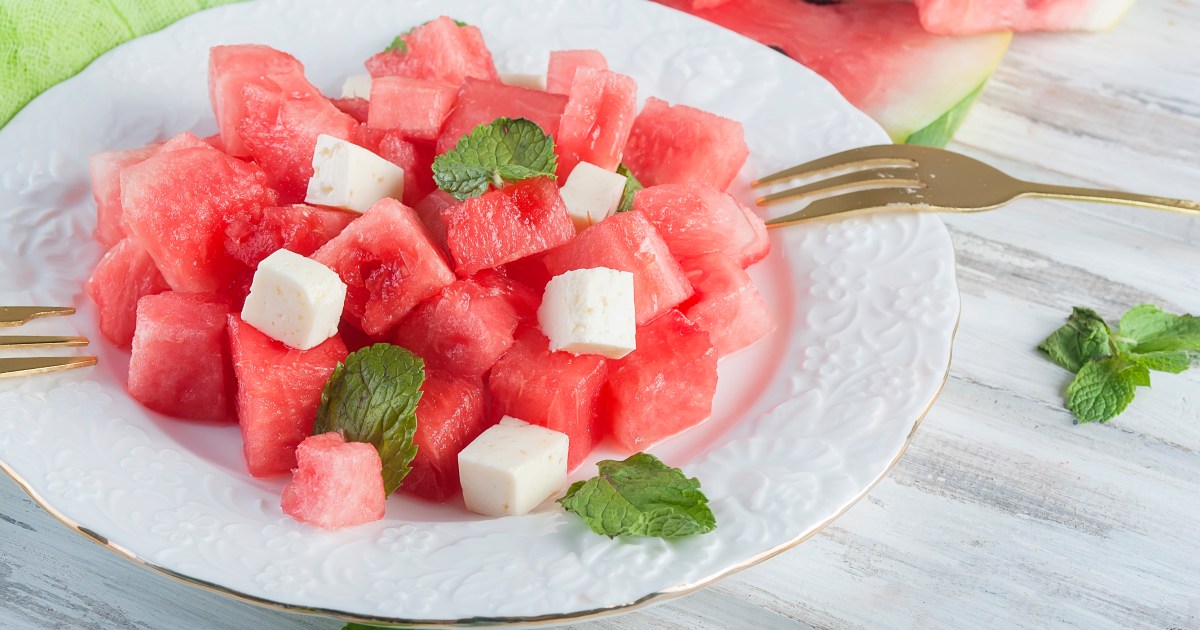How can you follow a diet to lose weight in the holy month of Ramadan safely, without suffering a setback in activity, or the appearance of symptoms of dizziness, fatigue and dehydration?
The answer is here, with a recommendation from a nutritionist in which he reveals a meal to compensate the body of the fasting person for what he loses of water and salt during fasting.
In this report, we present the method for those wishing to lose weight safely in the holy month.
third meal
Dr. Muhammad Abd al-Salam, a consultant in therapeutic nutrition, obesity treatment and weight loss advises those who want to continue their weight-loss diets during the month of Ramadan to divide meals into 3 instead of limiting them to breakfast and suhoor only, so that they include an evening meal between them 3 hours after finishing breakfast.
The benefit of this intermediate meal - according to Abd al-Salam’s statement to Al-Jazeera Net - is to avoid eating large quantities at breakfast or suhoor, and whoever wants to lose weight without dizziness or headache should make sure that these meals include 6 necessary food groups, which are fruits, vegetables, carbohydrates, proteins, oils and dairy, But in reasonable quantities of course.
Avoid dehydration
Abd al-Salam refers to a very useful meal to compensate for the body of a fasting person who loses water and salt throughout the fasting hours, which is watermelon with cheese because it contains glucose and amino acids necessary to avoid dehydration. It is also recommended to eat sufficient quantities of water, hibiscus, tamarind and other natural juices during the iftar period.
For his part, nutritionist Salah Gad advises eating slow-digesting foods at Suhoor, which contain complex carbohydrates such as beans, lentils, oats, and boiled potatoes without removing their skin, which reduces the level of cholesterol in the blood, as well as to avoid feeling hungry for a longer period so that a state of gluttony does not occur.
Gad said, "Eating fruits, especially apples, without peeling them in the Suhoor meal increases weight loss and gives a feeling of satiety during fasting hours." Eating fava beans increases the feeling of satiety, in addition to containing protein and minerals that help maintain physical fitness.
tea and fatigue
The nutrition expert stresses the need to eat breakfast that contains all food groups so that the body maintains its balance and does not feel weak and exhausted, for each type of each group, carbohydrates, for example, we must choose between rice, pasta, potatoes or bread to provide the body with energy without large calories, And meat, poultry or fish as a good source of protein.
And whoever wants to fast and lose weight without dehydration or suffering from a great feeling of thirst should avoid a lot of drinks that contain caffeine, such as tea, which is a diuretic, and thus leads to the body losing a lot of salt, according to the nutritionist.
Disadvantages of staying up late until suhoor
For his part, fitness trainer Muhammad Mohie warns against neglecting sleep during the month of Ramadan, as many people get used to staying up until Suhoor and then Fajr prayer, and then sleep for two or three hours and then get up to go to work, and this destroys physical and psychological health and even increases the craving for food as a result of the low energy of the body.
It is better - Mohie tells Al Jazeera Net - that a person sleeps early, then wakes up before Suhoor, eats his meal, prays Fajr, and then completes his sleep.
Drinking two cups of water before eating breakfast is very useful to avoid dehydration, and eating dates, bananas or sweet potatoes compensates for the loss of potassium and salts. Replacing the body with fluids and nutrients immediately after exercise, he said.

